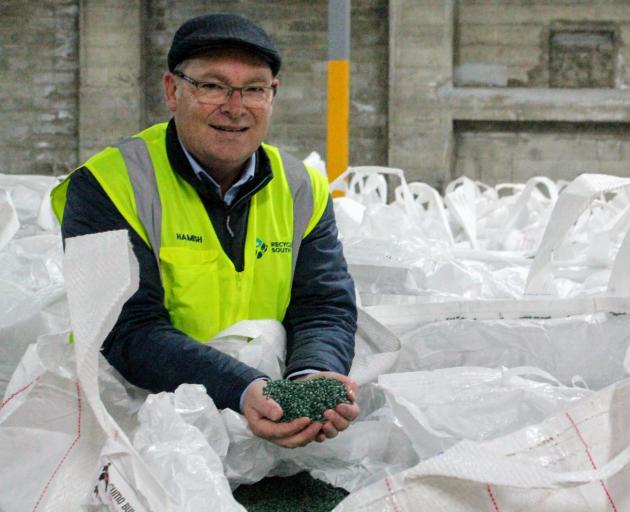A Southland business aims to recycle a tonne of agricultural plastic an hour in its new $2 million plant - the first of its kind in the country.
Recycle South - formerly known as Southland Disability Enterprises - built a new recycling plant in Makarewa with the goal to sort plastic, such as bale wrap, from Southland farms, as well as from parts of Otago.
General manager Hamish McMurdo said this would be possible thanks to the purchase of a $1.2 million pelletising machine which had been used in southeast Asian countries and was adapted specifically for the needs of Southland.
The new plant, which has been operating since July, had already processed about 300 tonnes of bale wrap from the region, he said.
"Our core product is bale wrap, but we will do domestic stuff later as we learn how everything works. We are still learning the machinery, but I think it is quite positive that we’ve already processed about 300 tonnes of bale wrap there," he said.
"I would like to process a tonne of plastic an hour . . . [which] is quite good if we could eliminate this huge problem for farmers across the region."
Mr McMurdo said bale wrap was one of the main challenges for farmers as it was extremely harmful to the environment.
"The massive benefit for the community is that we are removing plastic from burning or burying and we are transforming it into a commodity to trade. We are truly recycling plastic here in Southland."

If up to standard, the pellets could be transformed into new bale wrap or if not, could be used in drainage pipes and water tanks, he said.
"The received plastic is 100% recycled and reused and that means that we are not exporting any waste to other countries."
Mr McMurdo said the biggest challenge to establishing the plant was funding as funding avenues such as local government and local bodies across the region did not contribute. Therefore the company - which is a Southland-based registered charity - had to self-fund it with the help of local farmers, Community Trust South and ILT.
He said the plant was not only bought to try to help solve the region’s plastic problem but also to guarantee the long-term future of the company, which employs 82 people with disabilities.
While the focus was on the new plant, Mr McMurdo did not discount expanding the operation or building other plants of its type in the country.
"For someone who doesn’t know about the market, this is a start-up and there is always risk with a start-up. Once we prove our worth maybe it can be a different picture . . . but we are just diversifying and making sure we have a base of income that we can rely on long-term to help our people."













